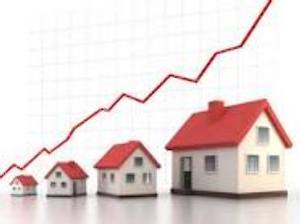Out of whack Auckland prices lead to data split
Accelerating Auckland asking prices have led Trade Me Property to split up its SuperCity data and its national data to avoid skewing the results.
Wednesday, July 15th 2015, 11:40AM
by Miriam Bell

Trade Me Property’s June Price Index shows that, over the last year, Auckland’s average residential property asking price has increased by $130,950 to reach $834,300.
Over the same period of time, the average asking price for residential property outside of Auckland increased by just $13,950 to $404,550.
This means that Auckland’s asking prices are rising at 10 times the rate of everywhere else in the country.
Further, the average Auckland house now has an asking price double its equivalent elsewhere in New Zealand.
Head of Trade Me Property Nigel Jeffries said Auckland’s property market was continuing to experience high demand and significant price increases.
This means it is at odds with what is occurring around much of the rest of the country - and shows that New Zealand has a two-speed market.
Jeffries said the “Auckland effect” was casting a huge shadow over the residential property market as a whole as it continued to go mad.
“The New Zealand property market can no longer be thought of as a single market: it’s Auckland on one hand and the rest of New Zealand in the other.”
Auckland’s average asking price expectation rose at a rate of 20.4% over the last year, while outside of Auckland that rate of growth was just 3.6%, he continued.
Since May, Auckland’s average asking price went up by 3.5%, which was a $25,000 increase over June alone.
Outside of Auckland, the average expected selling price dipped in June, which meant it was down 2% compared to May.
Jeffries said the record books were changing constantly in Auckland, with no sign of slowing down.
“This is the tenth consecutive month of record highs for the city.
“And, if we look at the last five years, the average asking price has risen 62.3% meaning sellers are looking for close to $300,000 more on average than they were than 2010.”
For this reason, Trade Me Property opted to split up its June data to avoid the national data being skewed by the “Auckland effect”.
Going forward, the company will continue to divide its Auckland data out from its national data.
Around the rest of New Zealand, property markets were displaying very different trends.
Five regions reported falls in asking price expectation in June 2015 compared to June 2014.
The largest decline was in the Manawatu region, which was down 6.2%, while Otago, which was down 2.4%, recorded its fifth month of price falls in a row.
However, nationally, the overall trend was still positive with the average asking price up 3.6% over the last 12 months, Jeffries said.
“Auckland is its own property micro-economy and we can’t expect similar returns for sellers in the rest of the country.
“What is positive for property sellers outside of Auckland is that over the last five years property prices have risen almost 19% from $341,000 to $404,550.”
Besides Auckland, two other regions posted double-digit growth over the last year.
They were Taranaki, which was up 22.5%, and the Bay of Plenty, which was up 11.6%.
Jeffries said that, in recent months, they had seen superb growth in the Waikato as Aucklanders headed to the region for cheaper property alternatives.
“But this month was a surprise result as average asking prices in the area declined 4.1%. We’ll be keeping an eye out to see if it was a one-off blip or whether demand is easing.”
| « Are buyers starting to look out of Auckland? | Housing market price divergence to slow » |
Special Offers
Comments from our readers
No comments yet
Sign In to add your comment
| Printable version | Email to a friend |


